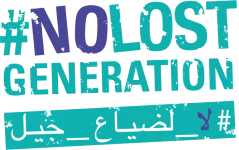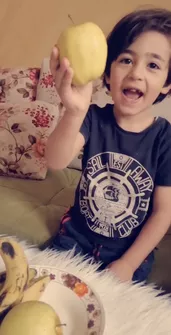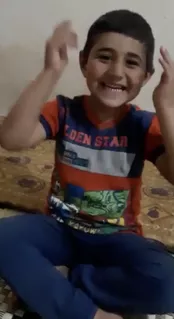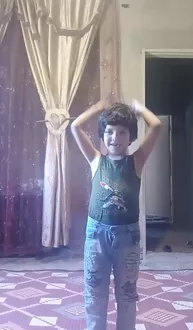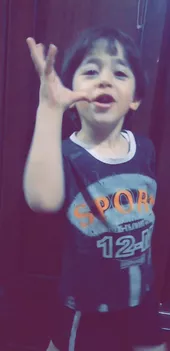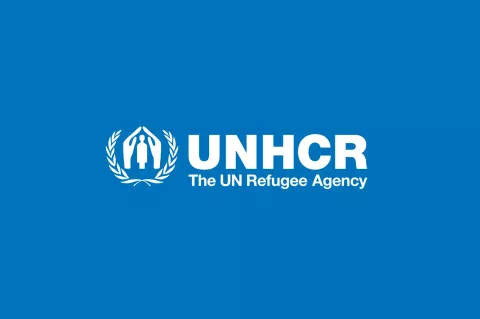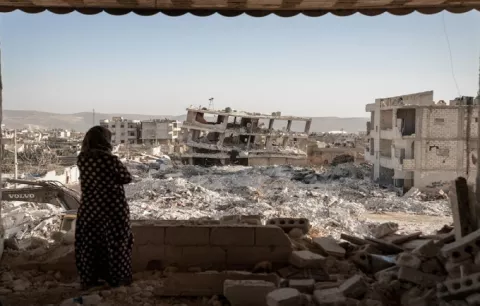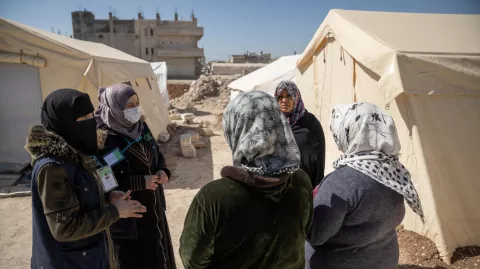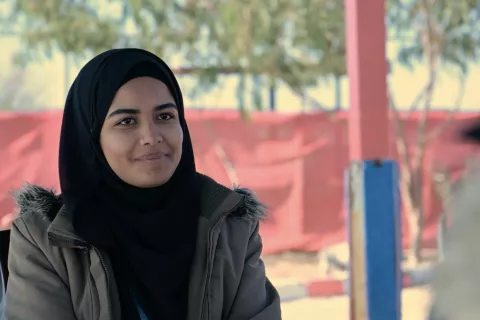Caregivers are our best allies for effective online learning
Caritas
No Lost Generation is marking the 10th year of crisis inside Syria with a series of blog posts shedding light on the comparative situation of children. Publishing one blog post a day, we will underline the needs of children and youth affected by the Syrian crisis and share the experience of our partners responding to their plight. We need to redouble our efforts and rethink our interventions, to shape a better future for 10.7 million children.
Between March and July of 2020, up to half of primary school children had little to zero contact with their teachers. This isn’t a statistic for a low-income country, it’s for the UK where 94% of households have WiFi. What then was the forecast for the 488,000 school-aged Syrian refugees in Lebanon, many of whom live in canvas tents or unfinished apartment blocks?
Back to the Future (a project in Lebanon run by Terre Des Hommes, War Child Holland and AVSI) rang us in April with this very challenge: to get their kindergarten children learning from home. The meeting was essentially a hard-to-hear list of restrictions: households with no resources; many illiterate parents; no potential for ‘live’ videocalls; restricted phone data, and finally they wanted a full proposal within 72 hours. The time pressure was understandable: 90% of the brain is developed by the age of 5 so every day missed is critical.
From the beginning, we wanted caregivers at the centre of the project. Back to the Future knew us from the Seenaryo Playkit, our phone app that gets teachers delivering through play. Play demands shared space, human touch, and real-life responses. It can teach vital life skills (the ones that develop by the age of 5) but only if children are on their feet, using their voices and trying things out. You don’t do this by looking at a phone.
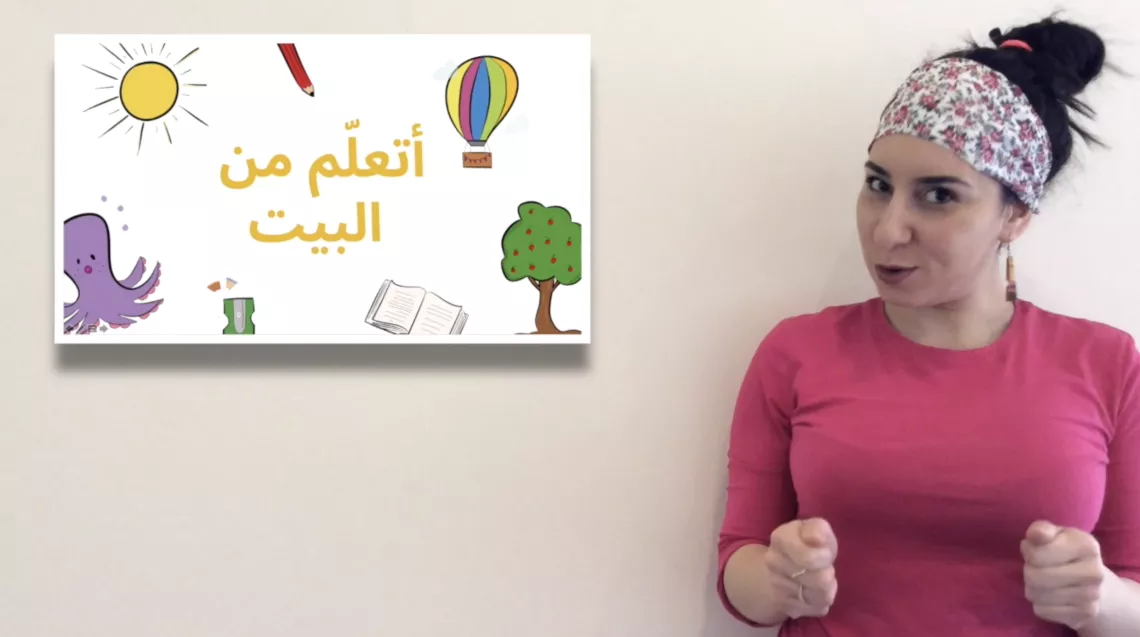
We assembled a production team of actors, editors, translators, illustrators, lesson planners and musicians. Our actors, themselves locked down at home, filmed Playkit lessons on their phones – one playing the caregiver, the other the child. A lesson on ‘everyday materials’ might consist of a treasure hunt round the home, a sorting game with whatever’s been found, a ‘running to the object’ game, and then a song. The final video would be for the caregiver to watch: 4 minutes maximum, time-lapsing through the activities and compressed down to a few megabytes, ready for WhatsApp.
Giving full responsibility to the caregivers was a gamble: among the main problems with home-schooling is lack of parental time. However, we had a big advantage which is that at this age, caregivers are often anyway with their children. On a Sunday night Back to the Future’s facilitators WhatsApp’d our first lesson to over 1000 families who had 48 hours to submit their ‘homework’. We collectively held our breath through Monday, half expecting zero responses.
My phone pinged at midday. There was a 4-year-old girl singing our hygiene song into a hairbrush; she’d learnt all the words in a couple of hours. It was an enormous relief. A minute later, my phone went again – this time a child playing our bathroom objects game. Through the next two days, we were bombarded with hundreds of similar videos, voice-notes and photos all about the topic of hygiene - an appropriate entry-point, given the pandemic. It was surreal to have turned overnight into a makeshift broadcast channel.
Over the next 6 months, many other organisations (including Caritas in both Lebanon and Jordan) distributed I Learn From Home to their families. In total, it’s reached 5,500 children. In Back to the Future’s evaluation, over 93% of children participated each week, an extraordinary proportion when you consider that UK statistic from the top. Even more encouragingly, 98% of those children progressed in line with the Ministry of Education’s milestones, despite no school attendance.
The success is down to the extraordinary mothers, fathers, siblings and other cargivers: “What’s noticeable is the enthusiasm of the parents, who’ve taken on the role of teacher at home – and in particular we’ve seen many men leading the learning”, commented one teacher. There are many touching stories but one that stands out is Nader’s, a recently-widowed father with two young boys: “It’s hard, I can tell you. At that age, you need your mother”. He’d been struggling to connect with his boys since his wife’s death but when he started on the programme, he enjoyed it so much that he requested additional materials. He reflected afterwards, “It’s been a very difficult journey, but extremely rewarding. I now know that I’m capable of looking after my children”.
In ‘normal times’ many parents find their child’s schooling something of an abstraction: they’re whisked away on a bus at 8am and return 5 hours later, having apparently learnt something. There is much NGO anguish on the challenges of parental engagement, but this was not our experience. We’re not suggesting that parents deliver their children’s education single-handedly, but a lesson going forward is that engagement happens when you put caregivers front and centre. A final, urgent lesson for Covid-times is that effective interventions do not focus intensely on ‘academic’ subjects. By prioritising wellbeing and fun with young children, we are much more likely to see progress in literacy and numeracy because – before anything else – there must be engagement. After that, everything else can follow.
About Caritas
Caritas Internationalis is a confederation over 160 members who are working at the grassroots in almost every country of the world. When a crisis hit, Caritas is already on the ground. Inspired by Catholic faith, Caritas is the helping hand of the Church - reaching out to the poor, vulnerable and excluded, regardless of race or religion, to build a world based on justice and fraternal love.
Caritas Austria is member of Caritas Europe and Caritas Internationalis and was founded at the beginning of the 20th Century. To know more about Caritas Austria, visit their website or find them on Facebook, Twitter and Instagram.
Caritas Lebanon was initially founded in 1972. To know more about Caritas Lebanon, visit their website or find them on Facebook, Twitter and Instagram.
